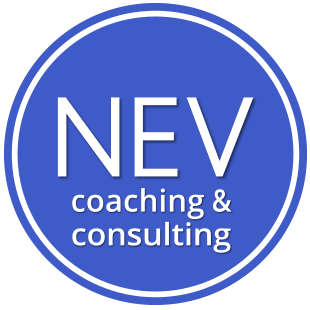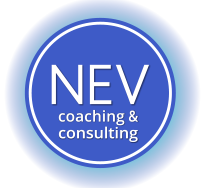 The team member of a dear friend and client recently responded to the option of having stress management training by saying “please just don’t make me do yoga”.
The team member of a dear friend and client recently responded to the option of having stress management training by saying “please just don’t make me do yoga”.
While I do love and respect yoga, and know it has many important benefits, I feel I understood her.
Yoga, like many other very specific practices, has its audience. And others, who simply don’t connect. When such solutions are over imposed, what that does is motivate some to disengage, and perhaps even further disillusion them to the possibility of finding their own brand of stress relief.
So in this post, we wanted to share the core structure of the way we see, understand and work with stress, and ways you can immediately start to manage it.
And it’s absolutely relevant to ALL.
There are two fundamental elements of the way you experience stress:
1) Your Stress Profile
We all have a toolbox related to stress – our innate and learned traits, perspectives, habits, and reactions to it that dictate not only how we experience stress, but also how we continue to deal with it over the long-term. Some may be healthier, others not so much, and most of us are a mix of the two.
It’s important to know that many of the elements of our profile we have acquired from our family, culture, and personal experiences (for better and for worse).
Often, little changes can make more of an impact for immediate and lasting relief than the pressure of making a big one.
Everyone has a Stress Profile, whether they want to or not, as it is part of their regular toolset of life management. The idea is to recognise it, understand it, and learn to manage it in the best way possible.
2) Your Stress Context
This represents the current set of circumstances – people, situations, dynamics, etc. – that affect the way your Stress Profile kicks into gear to deal with them.
This context may not be something you feel you have intentionally elected, but it is something you passively or actively chose to continue.
This may feel harsh, as at times our circumstances can feel too powerful and imposing to change. But in the long run, we almost always have a choice. However difficult. At least in the attitude and perspective we choose to take.
And the circumstances do not define who we are. This is to say this is not about judgment and criticism (self or other), simply something to be aware of and continuously review.
So why is this important?
Knowledge is power. And so is simple awareness and recognition. If we can get smarter about how we function and the elements in our lives that trigger us negatively, then we can do something about them.
And there is SO MUCH that can be done to meaningful change the way you experience stress, and your life overall.
Stress is ultimately a feeling of strain on our resources, or a sense of downright helplessness.
Something hurts, often repeatedly, and we feel that we don’t have the energy, power, insight or tools to make it go away, now or in the long term. So we either repeatedly ignore it, deny it, numb it, succumb to it, or what’s worse: justify it.
But why is this futile?
Because while you can make it go away in the moment by ignoring it, you cannot make it go away truly without dealing with it.
And the feeling of hopelessness and helplessness sets in, whether you like it or not, often then leading to a host of physical, emotional and even spiritual challenges.
See our article about the difference of complaining vs. the healthy verbalising of challenging emotions “Why Expressing Difficult Emotions is NOT Complaining”.
So how do we truly, effectively manage stress?
1) We name it
We identify in detail the parts of ourselves, our situation, our habits, etc. that are continuing to cause us stress and how.
-
- What are you feeling?
- Also, what consequences is this having on you and your life?
- And, what are you missing out on because of it?
2) We look into it
Once we have identified the key areas of stress, be it within us and/or externally imposed, we try to understand how it works.
-
- What specifically is causing you discomfort, pain, helplessness, hopelessness, etc?
- Who is involved?
- Where does it come from?
- When did it start and how?
- What are the ways you choose to deal with it and how are they working for you?
This and many other key questions help us really get to the root of the stress you are suffering from.
3) We create a strategy around it
Having really analysed the roots and elements of each stress factor, we now look to solutions.
-
- What naturally gives you healthy ease, balance, and relief and why?
- When are you at your best?
- What do your less healthy solutions provide and how can you substitute them?
- What ultimate new answers does your inner voice and wisdom suggest and what are the block(s) to it?
This and other strategies help us create a perspective, a toolkit of practices relevant to you and your situation, and a plan going forward to help you get short and long-term ease and satisfaction.
4) We follow through
The stress that most dearly weighs on us is the one that has been around for a while and therefore, it not only has constant influences and strains but also longer term consequences.
For any new strategy to work, it has to have a thorough follow-up with often simple habits of checking in with yourself, with key others who can really help you, and a system of go-to actions that can guide you adjust to both immediate and long-term pains.
But most of all, it is about continuing to shift your mindset about your specific stressors and the concept of stress as a whole. And building a counter-vision in detail of how a more easy and fulfilling existence can truly improve your life. This is where we create the long-term solutions for positive change.
Additionally, you can check out our video on “Developing SERENITY, growing your daily EASE, and RELAXATION techniques that work for you.” from our WeAreOne Sessions, where we review some timeless insights that can work for EVERYONE, allowing you to gain a greater sense of stability, ease and power in all the ways you’re feeling, day to day.
In future posts, we will delve more into some best practices for stress reduction as well as others for creating better organization, productivity and work-life balance, so stay tuned!
If you are struggling with stress in your life, whatever it may be, don’t hesitate to reach out to us for a free consultation so we can help you start your road to relief and greater life fulfilment, immediately.

